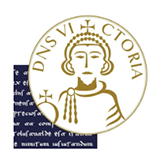Introduction
The University of Sannio is a public university located in Benevento, southern Italy. It was founded in 1998 and was formerly part of the University of Salerno. It currently has nearly 6,000 students and offers a variety of courses at undergraduate and graduate levels.
Overview
Number of students: about 6,000.
Faculty: The school's student-teacher ratio is about 1:13.4, and the faculty can provide students with relatively sufficient teaching guidance and academic support.
History
The history of the University of Sannio can be traced back to the four-year plan of 1986-1990, when it was part of the University of Salerno. On September 10, 1990, the Faculty of Economics and Social Sciences (now the Faculty of Economics) and the Faculty of Engineering were established by the decree of the president.
In the three-year plan of 1991-1993, the Faculty of Science was established. Before October 31, 1994, the Faculty of Economics and Social Sciences was managed by a technical committee, and the Faculty of Engineering was managed by the Faculty of Engineering of the University of Salerno. Since November 1, 1994, both faculties have had independent faculties committees.
On December 29, 1997, according to Ministerial Decree No. 1524, the University of Sanio was officially recognized and became an autonomous university on January 1, 1998.
Establishment time
1998.
School strength
Faculty: It has a team of highly professional teachers who have rich teaching and scientific research experience in their respective disciplines and can provide students with high-quality education and teaching services to help students master solid professional knowledge and skills.
Scientific research level: The school actively carries out scientific research activities, has achieved certain research results in multiple disciplines, and has established cooperative relations with other academic institutions, research centers and corporate partners in Italy and internationally, providing a broader platform and resource support for the development of scientific research projects, and promoting the development and innovation of disciplines.
International cooperation: Focusing on international exchanges and cooperation, through cooperation with foreign universities and institutions, carrying out student exchange projects, joint research and other activities, providing students with opportunities to study and exchange abroad, broadening students' international vision, and enhancing the international influence of the school.
Institutional nature
Public university.
Educational philosophy
Committed to cultivating professional talents with innovative spirit and practical ability, focusing on combining theoretical knowledge with practical application, so that students can better adapt to the needs of society and the workplace.
Emphasis on interdisciplinary education and research, encouraging students to explore and communicate between different disciplines, and cultivating students' comprehensive literacy and interdisciplinary thinking ability to cope with complex and changing real problems.
Pay attention to the personalized development of students, respect students' interests and specialties, provide students with a variety of course options and learning opportunities, and support students to study and research in depth in their areas of interest.
Key laboratories and disciplines
Key laboratories: The school has a number of research centers and laboratories, such as the research center related to climate change. These laboratories are equipped with advanced instruments and technical means, which provide important support for the scientific research work of related disciplines and help promote the frontier research and transformation of disciplines.
Advantageous disciplines:
Engineering: Covering multiple professional fields such as information engineering, electronic engineering, civil engineering, and energy engineering, focusing on cultivating students' engineering practice ability and innovative thinking, enabling students to master modern engineering technology and methods to solve practical engineering problems.
Economics and Business Science: Including majors such as economics, management, and finance, it aims to cultivate professional talents with a solid economic theoretical foundation and business management ability, providing students with rich courses and practical opportunities to help students understand the laws of economic operation and corporate management practices.
Natural Sciences: Biology, geology, biotechnology and other majors have achieved remarkable results in teaching and scientific research, focusing on cultivating students' scientific research ability and practical operation skills, so that students can carry out in-depth research and exploration in the field of natural sciences.
Faculty
Sanio University is divided into 4 colleges, as follows:
School of Law: Including undergraduate courses in actuarial and statistical sciences, professional courses in actuarial and statistical sciences, and master's courses in law.
College of Engineering: covers undergraduate and professional courses in information engineering, electronic engineering, civil engineering, energy engineering, etc.
College of Economics and Business Sciences: has undergraduate courses such as economics, management and organization, as well as professional courses such as economics and management, economics and governance.
College of Science: offers degree courses such as biology, geology, biotechnology, and professional courses such as biology, genetics, geological sciences, etc.
Ranking
2024 THE World University Ranking: 601-800.
2022-2023 US NEWS Global Best University Ranking: 1121st.
Expenses
Tuition fees: Undergraduate tuition fees are about US$1,000-3,000 per year, master's tuition fees are about US$1,500-4,000 per year, and doctoral tuition fees are about US$0-2,000 per year. The specific fees vary depending on the major.
Living expenses: Students' monthly living expenses are about 800-1,200 euros, including accommodation, food, transportation, etc.
Campus environment
Geographic location: The school is located in Benevento, a city with a long history that can be traced back to 274 BC It was once an important trading post in ancient Rome. It has a beautiful natural environment, surrounded by mountains and rivers. It is a regional center in southern Italy and is famous for producing grapes, olives and tobacco.
Teaching facilities: The campus has complete teaching facilities, including libraries, language centers, student dormitories, canteens, computer laboratories, etc., which provide convenience for students' study and life.
Campus culture: The school pays attention to campus culture construction, actively organizes various cultural activities, academic lectures, sports competitions, etc., enriches students' extracurricular life, creates an active campus cultural atmosphere, and promotes exchanges and cooperation among students.
-
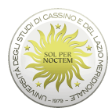
University of Cassino and Southern Lazio
-

University of Campania Luigi Vanvitelli
-
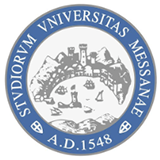
University of Messina
-
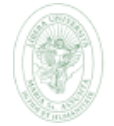
Libera Universita degli Studi Maria SS. Assunta di Roma (LUMSA)
-
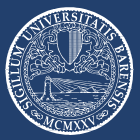
University of Bari Aldo Moro
-
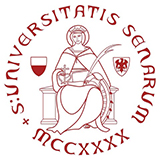
University of Siena
-
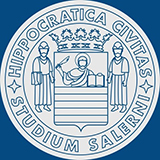
University of Salerno
-
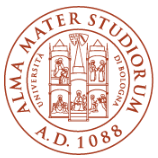
University of Bologna
-
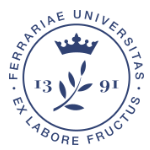
University of Ferrara
-
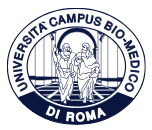
Campus Bio-Medico University of Rome
-

Mesoamerican University
-

Istmo University
-

Mariano Galvez University of Guatemala
-

Regional University of Guatemala
-

Galileo University
-

Francisco Marroquín University
-

Rafael Landívar University
-

University of the Valley of Guatemala
-

University of San Carlos of Guatemala
-

Technological Institute of Tlaxcala Plateau
-

Golfo University
-

Technological University of South Sonora
-

Technological University of Huejotzingo
-

Tizimín Institute of Technology
-

Chilpancingo Institute of Technology

